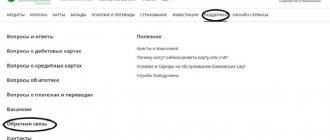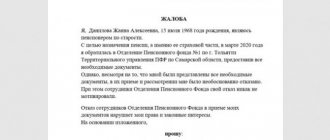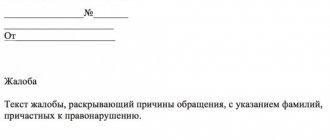Home/Complaint/Against a school teacher
The teacher has a huge influence on children. They not only provide knowledge on their subject, but also instill in the child aesthetic standards, form a worldview and contribute to the development of social adaptation skills. However, teachers do not always fulfill their obligations.
Attention
Personal conflicts or other situations may cause students to be harassed. Parents who are faced with such treatment of their offspring have the right to file a complaint against the school teacher. In order for documents to be reviewed and appropriate action taken, it must be drawn up correctly.
Why can you complain about a teacher?
A complaint against a teacher will be reviewed and appropriate action will be taken if the person has a valid reason for making the complaint. You can make a claim in the following situations:
Attention! If you have any questions, you can chat for free with a lawyer at the bottom of the screen or call Moscow; Saint Petersburg; Free call for all of Russia.
- the teacher hinders the child’s development at school;
- the teacher uses educational methods that have a negative impact on a minor citizen;
- the interests of the child and his personality are infringed;
- teacher humiliates student;
- the teacher does not perform direct duties;
- the teacher includes information in the lesson material that is not provided for in the school curriculum;
- unlawful methods of education are used;
- physical punishment is used;
- Funds are being collected, which was not agreed upon with school management.
Additional information
You can also contact the competent authorities if the teacher assigns grades not on the basis of knowledge, but taking into account the level of effort, behavior in the lesson and other reasons.
Grounds for complaint
The protection of the rights and interests of children by legal representatives is provided for in paragraph 59 of Government Resolution No. 196 of January 19, 2001.
The rights of a minor guaranteed by the Constitution of the Russian Federation to receive an education and protection of honor and dignity, to protect physical or mental health can be violated by illegal actions of school teachers.
These violations can manifest themselves in the form of:
- preventing the student from attending lessons (lack of uniform, completed homework, bad behavior);
- imposing actions (attending classes or events) of a religious nature, persecution because of religion;
- public humiliation of honor and dignity (obscene and offensive statements);
- unreasonable underestimation of grades, as well as the issuance of an unsatisfactory grade for behavior;
- manifestations of physical or mental violence (cursing, shouting, assault);
- causing material damage to property (damage to phones and gadgets);
- manifestations of hostility, making personal secrets and correspondence of the student public;
- collecting funds for the needs of the school, valuable gifts for teachers, as well as extortion.
Where to write a complaint against a school teacher?
Today, there are several places where a parent can file complaints about a school teacher. Will agree to review the document:
- director of an educational institution;
- RONO;
- prosecutor's office;
- court.
You need to select the necessary organization based on the specifics of the current situation. If a child begins to receive unsatisfactory grades, but the parents are confident that the minor is well versed in the subject, the first thing to do is contact the director of the educational institution. If the teacher has exceeded his authority, but the director refuses to respond to the complaint, you need to forward the complaint against the teacher to the education department.
For your information
The institution specializes in addressing issues related to violations of the rights of students. If physical or psychological violence has been used against a child, you must immediately contact law enforcement agencies or the prosecutor's office. They record the fact of the incident. The victim will then be able to file a claim in court and begin proceedings. During the consideration of the case, parents will be able not only to restore justice, but also to recover moral and material damages from the school teacher.
A collective complaint against a school teacher has more effect than an individual one. Therefore, if a teacher exceeds his authority in relation to several children at once, it would be appropriate to unite with their legal representatives and draw up a common document, sending it to one of the above-mentioned bodies. A complaint should be filed if there are specific, confirmed evidentiary facts.
Additional Information
Sometimes children begin to complain to their parents about teachers who are too demanding, and they, in turn, without understanding the situation, file appropriate complaints with all available authorities. However, there is no evidence of illegal actions. You should not allow your child to manipulate you. Such complaints can ruin a teacher’s career. If a child is unhappy with a school teacher, you should first talk to him and then take further action.
Applicable types of liability
Often, the parent is not interested in the possibility of bringing the teacher to legal liability. Legal representative. As a rule, he looks for ways to refuse a teacher who annoys the child. But at the same time, depending on the type of violation and the resulting consequences, the teacher may be held accountable for different types of liability:
- disciplinary;
- administrative;
- criminal;
- civil.
Disciplinary punishment
Disciplinary action can only be applied by the administration of the educational institution or by employees of the education department. For this purpose, an official investigation is carried out, during which not only the claim is studied, but also an explanation is taken from the guilty party, that is, from the teacher. The teacher has the right to defend himself and prove the legality of his actions.
At the end of the investigation, the inspecting party prepares an order imposing disciplinary punishment, which can be in the form of an oral or written reprimand, as well as dismissal. What consequences will occur in a particular case depends on the severity of the dispute, as well as the consequences and the number of affected parties.
Attention! Wrongful dismissal can be challenged by a person in court, so it is necessary to strictly follow the procedure without violating the rights and interests of the teacher himself.
The second point to pay attention to is the early termination of an employment contract at the unilateral initiative of the employer. When drawing up a work contract, additional clauses are added to the content of the agreement, which may become grounds for dismissal. In particular, this concerns a significant violation of the rights and interests of children (for example, the use of physical force or psychological violence).
Administrative responsibility
The Code of Administrative Offenses provides for two types of offenses for which there is liability under the Code of Administrative Offenses of the Russian Federation. The first group is a violation of the child’s right to education. In particular, this applies to putting children out the door during the educational process. A teacher who commits such actions may be punished with an administrative fine, the amount of which will vary from 30 to 50 thousand rubles.
If such a violation is repeated, the teacher may be deprived of the right to engage in teaching activities for a period of up to one year.
The second group of violations is related to the implementation of the educational process itself. If it is confirmed that the teacher’s actions disrupt the learning process, he will face a fine of up to 30,000 rubles.
Punishment is applied only by a judge based on the administrative material compiled by the police.
Punishment under the Criminal Code of the Russian Federation
A teacher, as an official, may be subject to various articles of the Special Part of the Criminal Code. This also applies to the infliction of bodily harm, confirmed by the conclusion of a forensic expert. In this case, criminal proceedings are drawn up, which are investigated in the general manner. The teacher must be prepared for the fact that the measure of responsibility will not be the weakest, since there is an aggravating circumstance - the teacher commits a crime against his subordinate, a child who cannot independently protect his interests.
Attention! A ban on teaching activities is used as an optional punishment.
In addition, there is one rule under which only teachers can be held criminally liable. This is a cruel violation of the right to education. The extent of liability depends on the individual characteristics of the case. Thus, a teacher may suffer the following types of punishment:
- a fine, the amount of which cannot exceed 100,000 rubles or cannot be higher than the person’s annual income;
- no more than three years of forced labor with mandatory deduction of part of the profit to the state (from 5 to 20 percent of wages);
- up to three years in prison;
- deprivation of the right to engage in educational activities for a period of up to five years.
Civil responsibility
The Civil Code of the Russian Federation provides for the possibility of individuals to receive monetary compensation for material and moral damage caused. The presence of conflicts between teachers and students is no exception. Moreover, filing a lawsuit to withhold compensation may occur regardless of the accompanying investigation.
The child's legal representative who believes there are sufficient grounds to receive the money must do the following:
- obtaining supporting facts that there are grounds for receiving compensation;
- collection of evidence indicating the guilt of the teacher, as well as the legality of the demand for monetary payment;
- calculation of the amount of compensation (confirmation of the amount with financial documents);
- preparation of a substantiated statement of claim, which is sent to a federal court of general jurisdiction, taking into account the requirements of territorial jurisdiction.
Withholding moral damages is a little more difficult in practice, since it is not easy to prove. On the other hand, the teacher’s unlawful actions violate the rights and interests of minor children, so the amount of compensation will be much higher.
Attention! It is permissible to prepare and submit a collective claim to the court.
Thus, the law provides a lot of possibilities for which legal representative can protect the interests of a minor child. If there are doubts that it will be possible to achieve justice, then you can involve a qualified lawyer in the conflict who will help resolve the dispute.
How to write a complaint against a teacher to the school principal?
When making a complaint against a school teacher, a person must indicate the reasons for writing it and offer a way out of the current situation. The document does not have a legally established form. However, in practice, a standard structure has developed that is best adhered to. When filling out the application, it is recommended to follow the following rules:
- In the upper right corner of a complaint against a school teacher, an appeal to the director of the institution is written, indicating his full name. Additionally, it is necessary to record the full name of the educational institution in the document.
- The applicant must provide personal information. The paper must include your full name, residential address and date of birth. Additionally, you must indicate the details of the teacher against whom the complaint is being made.
- The document should briefly outline the essence of the appeal. You should not express emotions and get personal. The complaint to the school teacher must be drawn up in an official business style. The applicant must write what exactly he is dissatisfied with, provide evidence of his innocence, and also set out demands and proposals for resolving the current situation.
- Indicate what actions will be taken if the issue cannot be resolved. The presence of information in the document is mandatory.
- Indicate the date the paper was drawn up and sign. Details are indicated at the end of the document.
A person can make a claim independently or use a ready-made sample, which can be downloaded here.
Methods of circulation
There are 4 main ways to file a claim:
- through the postal service;
- when contacting via telephone;
- personal contact when making an appointment;
- using the Internet.
For example, the Moscow Department of Education provides telephone lines for citizens to contact. You can find out the necessary information on education by calling the Moscow helpline.
To make an appointment with an education and student misconduct official, the applicant fills out a special form. The form must indicate personal information and the reason for the request. You should fill out the document carefully, as errors and non-compliance with requirements serve as grounds for refusal of entry.
For admission, the person making the claim must provide proof of identity.
Collective complaint against a teacher to the school principal
A collective appeal to the school principal can have a greater effect than an individual one. This is possible if they are oppressed for the interests of several children at once. It will be possible to file a collective complaint against a teacher if at least 3 parents agree to unite.
The document is drawn up according to standard rules, but differences from standard paper still exist. When filling out a collective complaint against a teacher, you need to state the current situation and the demands made not on your own behalf, but on behalf of the entire team. The document must also include the names of all parents who agreed to sign the letter. You can download a ready-made sample of a collective complaint here.
The procedure for writing a collective letter from parents
Complaints can be collective or individual. Often, parents write a collective statement indicating several reasons why higher authorities need to pay attention to the quality of education in a particular school. Most likely, after such a statement, systematic inspections will begin, which will entail changes in the structure of the educational process of this institution.
It happens that this is not the first time that a conflict has occurred, but the class teacher and school administration do not take action. In this case, the collective letter must be accompanied by copies of applications addressed to the director, which were never considered by him for unknown reasons.
Important. When composing a collective letter, it is necessary to list the full details of each parent who signed the application.
The text is written in the first person plural:
- "We";
- "our";
- "us" and so on.
If possible, you can mention points and laws that, in your opinion, were violated.
There should be no obscene language, sentences should be composed correctly, without subjective statements, such as “as soon as this teacher came to work at our school, we immediately didn’t like him.”
We do not recommend completing the documents yourself. Save time - contact our lawyers by phone:
8 (800) 350-14-90
Complaint to RONO against a school teacher
RONO is directly involved in the management of school institutions. Upon receiving a complaint, employees will conduct an inspection at the institution that appears in the document. The result of consideration of a complaint to the Regional Educational Institution against a school teacher may be:
- an explanatory conversation with the teacher who committed the violation;
- reprimand to the teacher;
- disciplinary action.
In extreme cases, the employee may be fired. The complaint is drawn up according to the classic model. It is written on an A4 sheet. The document can be filled out by hand or printed on a computer. The claim must indicate:
- the name of the institution;
- information about the person submitting the documents;
- the essence of the complaint;
- the name of the teacher who committed the violation;
- the requirements presented and references to regulatory legal acts confirming the applicant’s correctness;
- date of writing the application and signature.
You can download a ready-made complaint sample here.
Complaint against a teacher to the Department of Education
It is necessary to contact the Department of Education in a situation where a teacher gives grades that do not correspond to the child’s knowledge and uses incorrect educational methods. Having received the paper, employees of the Department of Education will study it and then conduct an inspection at the school.
A complaint sent to a government agency does not differ significantly from a similar paper sent to the educational institution itself. The only difference will be the address of the claim. The order and structure of the document remains the same. You can download a ready-made claim sample here.
To whom should the application be addressed?
The choice depends on what the teacher is suspected of. If the complaint concerns professional behavior: teaching methods, assessment, lesson design, compliance with teaching ethics, consideration of the issue should begin with an oral conversation with the teacher himself, the head teacher or the school director.
If the conversation does not help, you will have to submit a written complaint to the school principal. If the director is inactive, contact higher authorities:
- department of education of the municipal administration;
- the Department of Education is a regulatory body at the level of a constituent entity of the Russian Federation;
- prosecutor's office
If the subject of the complaint is the unlawful behavior of a teacher that threatens a student: physical violence, coercion to illegal actions, extortion, leaving a student in a dangerous situation, you should contact law enforcement agencies for help - the police and the prosecutor's office.
Complaint against a primary school teacher
It is much more difficult to substantiate a claim against a primary school teacher. Having received the document, employees of authorized bodies take into account the fact that children at a young age are prone to fantasies. Sometimes the opposite situation happens. A primary school student may be afraid to tell his parents about violations by teachers.
Attention
To reduce the likelihood of a claim being rejected, it is recommended to consult a psychologist. The specialist will talk with the child and find out the real state of affairs. Based on the results of the work, he will provide a conclusion in writing. The paper must be attached to the complaint. A document supplemented by a specialist’s opinion can be more effective than a standard claim.
A complaint against a primary school teacher is made in the same way as in all other cases. You can download a completed sample document here.
How to properly write a letter of complaint
The law does not provide for a strict form of appeal, but the applicant must include the following elements in the content of his claim:
- indication of the addressee, that is, the official or specific organization for whose consideration the application is being submitted;
- personal data of the applicant (full name, contact details);
- description of the essence of the violation;
- the consequences that occurred;
- ways to resolve conflict;
- legal requirements;
- date and signature.
It would be a good idea to attach copies of supporting documents to your application. In this case, all papers are numbered, and a single inventory of materials is prepared. It is advisable to provide evidence even when sending a complaint to the director.
The following rules for document execution should also be taken into account:
- sequence of presentation of facts;
- legible writing;
- absence of obscene expressions and emotional phrases;
- absence of errors, blots and corrections;
- avoiding threats and personal speculation, as well as individual insults.
If the appeal is prepared on behalf of the team, then the content must indicate the data of all interested parties and the occurrence of specific consequences for each of them.
Claim for bias
A prejudiced attitude towards a child can also become a reason for filing a complaint against the teacher. You can contact the authorized bodies if a teacher finds fault with a child or lowers grades. However, parents must be clear that bias is indeed present. Initially, you should talk to the teacher yourself, and then file a complaint with the director. If the appeal is not useful, the documents must be sent to RONO. The complaint is filed in accordance with the classical rules. You can download a sample document here.
Who has the right to file a complaint?
The legal representative of a child whose rights are being violated by a teacher has the right to file a complaint. If an official behaves inappropriately towards a group of students or the class as a whole, then it is necessary to draw up a collective statement.
As a rule, more than one student suffers from the teacher’s excessive demands. Parents need to unite to solve the problem and submit a collective application. The authorized body undertakes to accept the complaint and respond to it properly. Based on this, the violator is held accountable.
Complaint against teacher for insult
In accordance with Article 34 of Education in the Russian Federation, a student has the right to have others respect his dignity. The law protects minors from insults and mental violence. The above regulatory legal act obliges the teacher to comply with the requirements of professional ethics and respect the honor and dignity of students. This means that teachers do not have the right to insult and publicly humiliate children. If a child violates discipline, the teacher is obliged to act in accordance with the school charter.
IMPORTANT
If a child has been insulted, his parent should not ignore the situation. You can try to solve the problem peacefully by visiting the teacher and trying to talk with him. If the conversation does not produce results, you will need to write a statement addressed to the director. The paper can be compiled individually or collectively. If the measure does not produce results, you will need to file a claim with RONO. The last resort is to file a complaint against the school teacher with a statement of claim to the court, prosecutor's office or law enforcement agencies.
In all situations, the complaint template is standard. Only the addressee of the application changes.
Legal regulation of the rights of schoolchildren
The rights of students are established by Article 34 of Law No. 273-FZ.
Schoolchildren have the right to:
- respect for human dignity;
- protection of health and life, protection from all forms of mental and physical violence, insult to personality;
- free expression of one's own views and beliefs, freedom of conscience and information;
- choice of educational institution and form of education;
- presentation of conditions for learning, taking into account the characteristics of the health and mental development of the minor, receiving psychological and social pedagogical assistance;
- participation in the formation of professional education;
- training according to an individual plan;
- selection of compulsory and optional academic disciplines and subjects;
- obtaining other academic disciplines and subjects along with the main academic subjects and disciplines of the chosen curriculum;
- assessment by an educational organization of the results of academic subjects and disciplines mastered in another educational institution;
- holidays;
- transfer to another educational institution;
- free use of the library;
- development of creative processes and interests (participation in sports events, Olympiads);
- encouragement for achieving success in educational, social and physical education activities;
- other rights.
Table 2. Types of violated rights of students established by the legislation of the Russian Federation
| Violated right | Form of violation | Rule of law |
| To respect human dignity | Physical and psychological violence against children: – insults; – constant criticism; – threats against a child; – gross physical impact resulting in psychological trauma | Clause 9 of Part 1 of Article 34 of the Education Law |
| For equality | The teacher’s attitude towards schoolchildren depending on appearance, academic performance, gender, nationality, financial situation | Art. 19 of the Constitution of the Russian Federation |
| Freedom of expression | A student’s opinion about educational material or a historical fact is equated to ignorance of the subject and results in a lower grade. Inability to express an opinion about problems in school life. Punishment for an act committed on the basis of inner conviction | Art. 29 of the Constitution of the Russian Federation |
| To respect privacy | Commenting on the circumstances of the private lives of schoolchildren. Disclosure of information about the private and family life of students. Reading notes, messages on your phone, etc. | Art. 23, 24 of the Constitution of the Russian Federation |
| For information | Lack of educational and organizational information in the public domain (prohibition of parents familiarizing themselves with grades, refusal to familiarize themselves with the conditions for obtaining an education, the charter of the school, including on the website). Lack of information (address, telephone numbers) about services and departments where you can contact to protect your rights | Art. 29 Constitution Art. 44 Law on Education |
| For education | Inadmissibility to class or removal from the lesson (with the lack of replacement shoes, uniform, violation of discipline). Payment for additional educational services. Lack of choice of educational program | Art. 43 Constitution, Art. 5 of the Education Law |
Anonymous complaint against a teacher
Worried about the well-being of the child and his future relationship with the teacher, parents seek to write an anonymous complaint. However, such claims are usually not considered. This is due to the fact that the response to the received document must be sent to a specific address. If it is missing, employees of authorized bodies will not be able to report on the measures taken.
Attention
There are exceptions to the rule. If the document reports information about serious violations by teachers, an audit may still be carried out.
Such situations include:
- threats of terrorist acts;
- crime against the life of a student;
- crime against the health of students.
An anonymous complaint is drawn up according to a standard template, but the personal data of the applicant is not indicated.
Procedure for filing a claim
In cases of appeal against actions related to pedagogical processes, claims are sent to:
- the head of the educational institution;
- to the education department of the relevant municipality;
- regional department of education;
- Ministry of Education and Science of Russia;
- Federal Service for Supervision in Education and Science of the Russian Federation.
Attention! Our qualified lawyers will assist you free of charge and around the clock on any issues. Find out more here.
What does a complaint against a school teacher lead to?
Typically, a parental complaint against a school teacher leads to an inspection by the competent authorities. It can lead to the following results:
- the violation will not be detected and no action will be taken against the teacher;
- a non-serious violation will become a reason for a preventive conversation;
- a number of offenses will lead to disciplinary action;
- a serious violation will be a reason for dismissal from work or administrative liability;
- A threat to the life and health of a child may entail criminal liability.
Additional information
Sometimes a groundless accusation from parents can ruin a teacher's career. Therefore, it is worth making sure of the available information before immediately contacting the competent authorities.
What could be the consequences?
After considering the claim, a competent person makes a decision, taking into account the results of checking the stated circumstances. If these facts are confirmed, the person guilty of the violation will be held accountable.
The degree of punishment depends on the severity of the offense and includes both the issuance of a reprimand with subsequent entry into the work book, and the filing of a claim in court.
Grounds for recognizing a claim as justified if the teacher:
- evades performance of official duties;
- does not comply with safety requirements, which caused injury to the child;
- does not adhere to the internal regulations of the educational institution;
- violates ethics and does not comply with moral standards;
- during the learning process does not take into account the psychological state and health of the student;
- contributes to the emergence of conflict based on nationality and religious views;
- is biased towards the student;
- unreasonably lowers estimates.
Explanatory letter from the teacher regarding the parents' complaint
If a complaint is received from the child’s parents, the teacher has the right to write an explanatory note in his own defense. There is no unified form of the document. However, the school management has the right to approve it.
Attention
The teacher’s explanatory letter to the parents’ complaint is drawn up in a single copy. To compile it, use a blank A4 sheet. The paper should contain an explanation of the situation. The document can be handwritten or printed on a computer. The paper must contain the names of the participants in the situation, the date the paper was compiled, and the teacher’s signature.
Statement of claim to court
An important tool in situations where an employee of the teaching profession causes moral and (or) material harm is the rights of parents to file a claim in court.
Such a right can be exercised in accordance with Art. Art. 150 and 151 of the Civil Code of the Russian Federation by filing a claim with a magistrate or a court of general jurisdiction at the place of residence of the defendant.
Remember! Taking into account the provisions of clause 5, part 1, art. 23 of the Code of Civil Procedure of the Russian Federation, you need to contact a magistrate only in case of causing material damage in an amount not exceeding 50,000 rubles.
If moral damage is derived from material damage and is assessed in an amount not exceeding the specified amount, the case is also within the jurisdiction of this authority.
Thus, claims for compensation should be filed in a court of general jurisdiction:
- only moral damage;
- only material damage in the amount of more than 50,000 rubles;
- moral and material damage exceeding 50,000 rubles;
- material damage in the amount of less than 50,000 rubles, if at the same time moral damage was caused that was not related to damage to property (threats, insults, etc.).
If there is a connection between the teacher’s actions and any consequences for the child’s physical health, the claim is also filed in a court of general jurisdiction at the teacher’s place of residence or at the place where the harm was caused (Part 5 of Article 29 of the Code of Civil Procedure of the Russian Federation).
Important! When drawing up a claim for compensation for moral damage, it is necessary to evaluate it in monetary terms and, if possible, support it with documents as much as possible (a certificate of psychological services, medical expenses, etc.).
The presence of a video recording of the teacher’s deviant behavior, which resulted in damage to the interests of the child, will be a significant help in the process of proof during the judicial hearing of the case and will significantly increase the plaintiff’s chances of a positive outcome.








